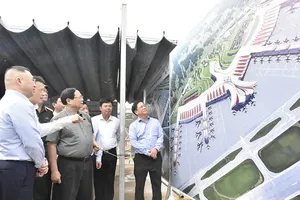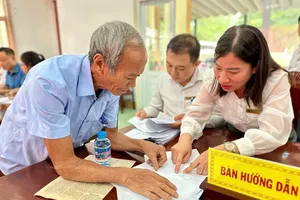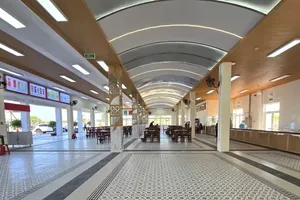
In early November, the ministry will hold a conference on implementing the database project, which was approved by then Prime Minister Nguyen Tan Dung in 2015.
The project will serve as the foundation of the national scheme to simplify administrative procedures, keep track of citizenship documents and store information related to population management.
The basic information of more than 90 million Vietnamese citizens will be put into the information technology systems based in Hanoi and HCM City.
Provinces and cities will be equipped with technical equipment and a high speed transmission line to ensure connectivity with the national database, the ministry said.
This year, the ministry will begin to collect information from over 90 million people and organise software application training courses for localities, colonel Tran Hong Phu, deputy director of Police Department on residence management and national data on population (C72), told the Thanh Nien (Young People) newspaper.
The national database will be shared with ministries and sectors to serve the State management, Colonel Phu said.
Accordingly, people will only need to provide three basic pieces of information, including full name, identification number and residence. This is significantly simpler than the current system, which often requires many types of papers such as household registration books or birth certificates to complete administrative tasks.
Phu noted that state management agencies must be synchronised to ensure administrative procedures are completed effectively and quickly, even after the new database is established.
In early July, the Government issued a series of resolutions approving the simplification of administrative procedures of many ministries and agencies.
Referring to the Ministry of Health’s proposal to remove the current system of household registration books, Phu said: "In my opinion, the current household registration book is still needed for management work, but the book itself will be worthless if the national database will be officially implemented.
At that time, the authorities can make proposals to the National Assembly and the Government can make appropriate legal changes.”
























